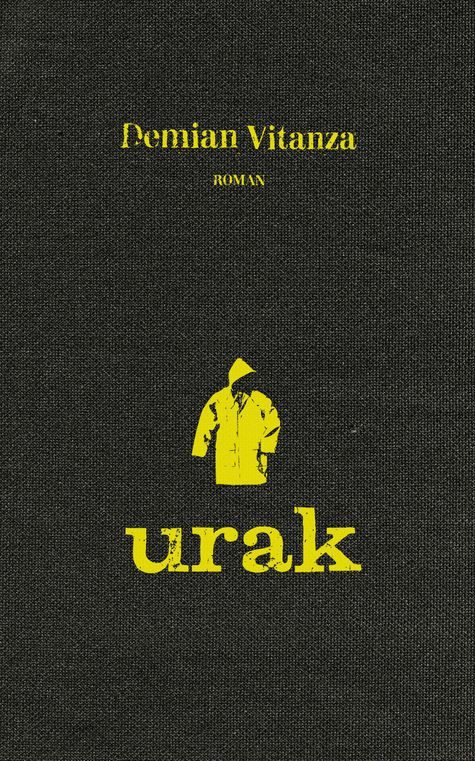Urak
Urak is a novel that holds three stories of uncertainty, stories that are woven into one another. Is it possible to forgive yourself for abuse you may or may not have committed, when you’re not even sure of the possible time or place? Three different protagonists have to relate to events that they aren’t sure whether are imagined, remembered, or prophetic. The novel follows these people through the unknown, through the fear to complete a thought or a sentence in case it may reveal something about the past or the future.
“It’s strange how disturbed we are by stories not being contiguous; how eager we are on gluing things together, so they fit. For me, urak is a portrait of this voracious hunger for coherence.”
Demian Vitanza
Praise for URAK:
“I think I’ve read this year’s best and most dangerous debutant. ( … ) Most books published by decent publishing houses are pretty good. Some are ordinary, but we can afford, as a country of books, to develop authorships. There rarely are debutants that take stranglehold from the first sentence – and that keep holding on. Demian Vitanza is one of those.”
(Aftenposten)
“Vitanza has a surprisingly confident style for a debutant, and he has managed to experiment both with form and content in a very successful way. I don’t often want to read a book once more the very moment I have closed it, but this is one of those books, despite of all the negative feelings it produces.”
(Dagbladet)
“Few books manage to communicate the extremes of doubt and contempt without using banal solutions. Urak is one of them. The reader becomes the judge that decides whether the characters are guilty or not. ( … ) The most exciting thing about the book is how unusually and subtle it’s written. The physical actions are often only displayed through hints, and the reader is forced to create his own images. The actions are actually never really revealed, as the characters are so divided by self-loathing, denial and deep love for eachother. The language is simple and often borders to almost childish. But this is only external. There are extraordinary human insight and communication skills between the lines.”
(Universitas)
